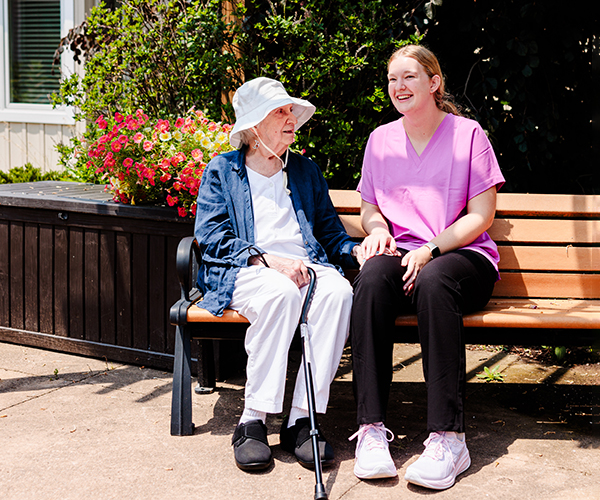|
How to Help Your Plastic Surgery Go Safely While it's great to trust your doctor, you'll increase your chances of having a safe surgery if you engage in a little suspicion and detective work. Here are some things you can do before you arrive at the operating room: 1 Choose a doctor who is board certified in the appropriate specialty. Some of the deaths from plastic surgery have happened under the knife of "board-certified" doctors because they were board certified in other specialties, such as family medicine or dentistry. In addition to plastic surgery, you may also want someone who is board certified in ear, nose and throat surgery, dermatology or even ophthalmology, depending on the procedure. 2 Make sure your doctor has hospital privileges. If something goes wrong, the physician needs to have somewhere to admit you. Doctors without hospital privileges may hesitate to get the necessary help, and that could cost you your life. 3 Insist on having a board-certified anesthesiologist administering or supervising your anesthetic. Some deaths have been reported in clinics where the surgeon tried to administer the anesthesia and perform the surgery. An anesthesiologist should give the anesthesia or supervise a nurse anesthetist. 4 Check out the facility's accreditation. Plastic-surgery horror stories often involve procedures attempted in a physician's office. Plastic surgery should take place in a hospital or surgery center that has met stringent credentialing standards. 5 Be honest with your physician. Tell your doctor what type and the amount of medications, birth-control pills, vitamins, nutritional supplements, alcohol and recreational drugs you use. Some can dangerously interact with anesthetics, slow the body's ability to heal or cause excessive bleeding during surgery. Also, tell your physician about any medical issues you may have, particularly if they involve a major organ such as the heart, liver, kidneys or lungs. Finally, some procedures, such as tummy tucks, can be "undone" by pregnancy, so be honest about whether you plan to have more children. 6 Don't shop price. Since cosmetic surgery isn't covered by insurance — with the exceptions of a nose job to resolve a breathing issue or a breast reduction for back pain — it can be an expensive endeavor. But remember that the cheapest physician might be inexpensive out of desperation to get patients. The most expensive, while not necessarily the best, is probably the better choice because he or she can charge a higher price for a reason. 7 Undergo all necessary lab tests. Before surgery, your physician will want to run a series of lab tests, possibly including bloodwork, a urinalysis, a chest X-ray or EKG. To minimize your risk, get any positive results under control before undergoing surgery. 8 Lose weight first. A dramatic weight loss could affect plastic surgery, causing a sagging face or a floppy belly. It's best to drop weight before surgery so that the results are ideal and don't need be touched up later. 9 Quit smoking. "I have canceled facelifts the morning of surgery because the person smells like smoke," says Dr. Mark Foglietti, director of the Cosmetic Surgery Institute in Beachwood. "Smokers are not going to heal. They're going to bleed." 10 Ask your surgeon about his or her techniques and safety precautions. For example, there are different ways to do breast-reduction surgery, some of which may better preserve a woman's ability to breastfeed in the future. 11 Talk to other patients — and get other opinions. A good surgeon should be willing to give you names and numbers of other patients he or she has treated. Also, you should feel free to go to several plastic surgeons before committing to surgery. Don't fall for any physician that gives you a high-pressure hard sell. Bottom line: If you feel uncomfortable for any reason, run. 12 Be psychologically healthy and realistic in your expectations. You are born with certain features that plastic surgery can enhance, but it won't magically transform you into something you're not. |
Then, in April, ABC's newsmagazine "20/20" revealed that in the past seven years, 36 people had died in Florida as a result of elective plastic surgery. The show highlighted the death of Julie Rubenzer, an attractive 38-year-old who — like thousands of American women — just wanted bigger breasts.
Despite these well-publicized tragedies, however, the American Society of Plastic Surgeons says that more than 8.7 million people underwent elective procedures in 2003 — up 32 percent over 2002. The most popular surgery last year was the 5ose job, followed by liposuction, breast enlargement, eyelid surgery and facelifts.
9he popularity of the reality-TV shows "Extreme Makeover" and "The Swan" helped boost the number of people going under the knife.
"Overall, those shows have been positive for business•because people see these relatively nice outcomes," says Dr. Mark Foglietti, director of the Cosmetic Surgery Institute in Beachwood.
Joglietti, who is also chief of plastic surgery at Marymount Hospital and Richmond Heightst Hospital, cautions that many of those shows involve total makeovers that go well beyond plastic surgery, including weight loss, dental work, makeup and hairstyles. And $hat can contribute to some patients' unrealistic expectations of how dramatically plastic surgery can change their lives.
It's one thing to say you want a nose similar to Brad Pitt's because you like that it's straight and has a nice tip. But it's quite another to ask a surgeon to actually transform you into Brad Pitt.
"Good cosmetic surgery makes people look younger and more beautiful, but it does not make them look surgical or artificial," says Dr. Steven Goldman, assistant professor of plastic surgery for University Hospitals, who is board certified in the specialties of plastic surgery and ear, nose and throat. "There are people who go on talk shows whose faces were remade to match a movie star or an animal. I think there are big ethical questions about that."
Most plastic surgeons turn away patients with unrealistic expectations, either because they want too many procedures or because they want to accomplish a look that's not possible with their facial structure.
"A patient and a surgeon must have similar goals," Goldman says. "So if a patient really wants an artificial look, then a surgeon like myself might not be willing to do that. There are people who, if paid, will do the surgery."
That most likely contributed to the problem with Michael Jackson's nose.
ΩSomewhere along the line, someone didn't say no," says Dr. Michael Wojtanowski, chief of plastic surgery at The Cleveland Clinic Foundation's Fairview Hospital and medical director of the Ohio Clinic for Aesthetic and Plastic Surgery in Westlake. "One of the things I teach young plastic surgeons when they spend time with me as residents is that one of the most important things to learn is when to say no to a patient. Every patient who walks into your office is not a candidate for surgery."
Some requests for procedures should prompt a physician to question the patient's psychological health, adds Dr. Fadi Abbass, an ear, nose and throat surgeon who concentrates on facial plastic surgery.
"People look best after their first facelift," says Abbass, who runs The Face Institute, headquartered in Chagrin Falls. "I think they look OK after their second. But after that, people start to look a little funny. Other procedures, if they're done right, don't need to be done again, such as nasal surgery or facial implants."
Along with assessing psychological health, a plastic surgeon should thoroughly evaluate a patient's physical health, as well. Heart conditions, depression, uncontrolled diabetes and even smoking can make elective cosmetic surgery too dangerous to attempt.
"After a facelift, the face swells. It swells no differently than it would after a car accident," says Dr. Lu-Jean Feng, medical director of the Lu-Jean Feng Clinic in Pepper Pike. "The body doesn't know it's having a facelift to beautify vs. being in a car accident."
The factor that contributes most to the success of plastic surgery is a patient's healing capacity, says Feng, who is also associate clinical professor of surgery at Case Western Reserve University. That's why many plastic surgeons will not operate on smokers.
"Smokers are a big no-no in elective surgery," says Feng. "They have decreased circulation, a decreased ability to heal and their lungs are bad."
Complications that can arise include blood clots and problems with anesthetics. Most doctors will use sequential compression stockings during surgery, which squeeze the legs to help prevent blood clots from forming.
The true cause of author Goldsmith's death has never been revealed. But newspapers reported that once she was administered anesthesia, she may have had a heart attack caused by an underlying heart condition that she may not have revealed to her surgeon.
For safety's sake, it's critical for patients to be honest with their physicians about all medical conditions, as well as about all medications, including aspirin or birth-control pills, alcohol, recreational drugs, vitamins and herbal supplements. Some can interact with anesthetics, causing dangerous outcomes. Vitamin E and St. John's Wort, for example, can contribute to excessive bleeding during surgery.
A patient may need to change medications, dosages or even add something prior to undergoing surgery. For instance, Feng puts patients on specific vitamins for two weeks before and two weeks after surgery.
Patients with a heart condition called mitral valve prolapse need a dose of antibiotics before undergoing cosmetic dentistry to ward off an infection that can travel from the gums to the heart, causing death, says Dr. Stuart Katz, a Beachwood dentist who concentrates on cosmetic dentistry. Blood thinners often need to be adjusted prior to any procedure as well.
But Katz agrees with the plastic surgeons that the best results in dentistry have a lot to do with a patient's expectations.
"Sometimes, patients will bring in a picture of what they looked like 30 years ago," Katz says. "I look at the teeth. They look at the whole person. I tell them I can't achieve the goals they're looking for. I can't make the face look like it did 30 years ago. I wish I could, because I'd have a long line out my door."
Feng often asks to see pictures of patients when they were younger, so she can get a better idea of their natural bone structure.
"If you take someone with poor bone structure vs. someone with good bone structure and you do the same operation, the person with the better bone structure is going to look more beautiful," she says. "Each patient has different potential."
A qualified surgeon will spend a great deal of time educating patients about their potential, the details of the procedure and safety precautions. It should be a red flag for you if you still have questions after meeting with your doctor.
Another red flag, says Feng, is if a surgeon is too eager to do everything the patient asks. Foglietti adds that even if something just "doesn't feel right," patients should take that as a warning sign.
"Patients need to participate in their own safety," agrees Wojtanowski.
That means checking the credentials of your surgeon, anesthesiologist and the facility where the surgery will take place.
Floridian Julie Rubenzer, who died in April, sought breast augmentation at the storefront clinic of Dr. Kurt Dangl, who advertised that he was "board certified." It wasn't exactly a lie, ABC reporter Lynn Sherr discovered. Dangl was board certified — as a dentist and oral surgeon. He didn't have the proper training to enlarge breasts and he certainly wasn't qualified to administer anesthetics. Yet a witness in the operating room told Sherr that Dangl juggled both jobs on his own during Rubenzer's fatal surgery.
"A surgeon doesn't have time to give you anesthesia. He's concentrating on giving you surgery," says Wojtanowski. "That would be like having somebody fly a plane and be a flight attendant at the same time."
Foglietti says he would like to see legislation enacted in Ohio that protects patients from procedures performed by unqualified doctors. As it stands now, physicians are permitted to do any procedure in their own offices — whether or not they've had the proper training.
Ohio also does not require physicians to have hospital privileges, which means a patient may not be transferred easily to a hospital if complications arise. Patients should make sure their doctors have hospital privileges, even if their procedures are being performed in clinics.
"Aesthetic surgery is still medicine, even though shows have popularized it," says Goldman. "It still involves anesthesia. It sometimes involves revisions. It's still serious medicine and it shouldn't be taken lightly."



